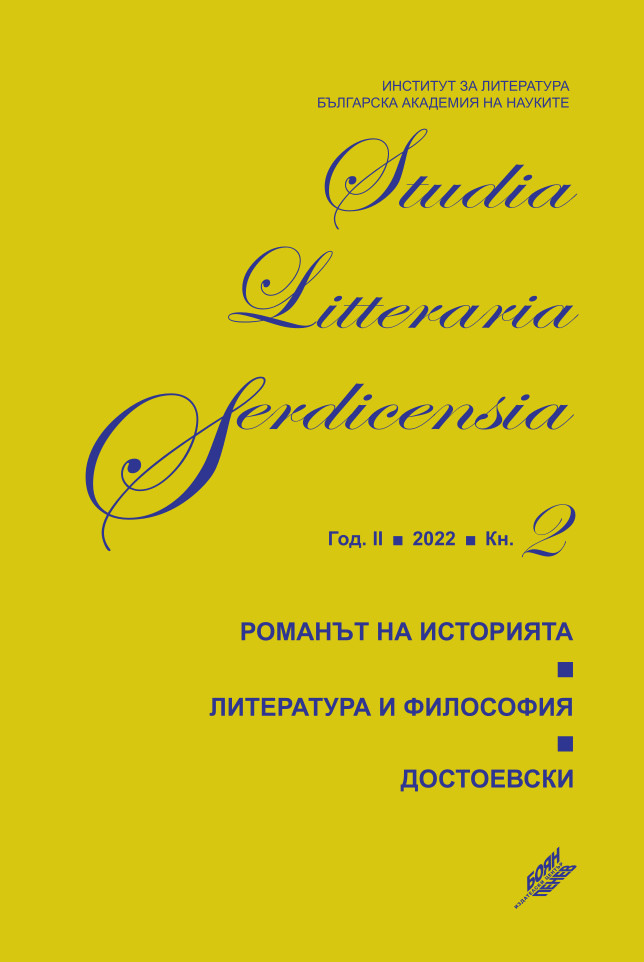In the context of western utopian philosophical and literary tradition from Plato to Dostoevsky, Mikhail Gorbachev’s book Perestroika: New Thinking for Our Country and the World (1987 and 1988) demonstrates not only its utopian character, but simultaneously tempts one to come with theoretical and practical dystopian objections. This essay analyzes six key utopian features of the book and their dystopian metamorphoses. First, the utopian postulate assuming all people are philosophers and, therefore, embrace perestroika’s only possible truth is an abstract philosophical concept, but not a practical possibility. Second, glasnost is the new garb of the old utopian requirement for a cataphatic language fully expressing the truth; language, however, can lie, too. Third, utopian self-criticism of Soviet dignitaries fosters incredulity and hatred in their subjects, who detest them as either weak leaders or self-serving hypocrites. Fourth, utopian belief in a future true and flourishing socialism is undermined by the paucity of real socialism. Fifth, perestroika as a utopia presupposes an idealistic temporality, which, however, contradicts perestroika’s claims to historical materialism and dialectics. Finally, following in the footsteps of utopia, which is an oxymoronic closed-open world not allowing imports of imperfection but exporting perfection, perestroika proclaims its self-sufficiency, but also lays bare its latent imperialism and militarism. Perestroika’s contradictory utopian-dystopian essence results to a great extent from the naïve quasi Marxism enjoying an unchallenged status in the USSR. Paradoxically, but also inevitably, pseudo Marxism smothers all other philosophical alternatives and thus leads not to strengthening, but collapsing of the USSR and its own philosophical and practical suicide.
Keywords: perestroika, utopia, dystopia, philosophy, literature
OF UTOPIA AS DYSTOPIA: MIKHAIL GORBACHEV’S BOOK PERSTROIKA: NEW THINKING FOR OUR COUNTRY AND THE WORLD
-
PAGE RANGE: 341 - 365
PAGE COUNT: 25download:NUMBER OF VIEWS:35YEAR: КНИГА 2PUBLISHED ON :
PUBLISHER: INSTITUTE FOR LITERATUREISSN (Print): 2738-7631ISSN (Online): 2815-2999
-
-
- NAME: Nikita Nankov
- INVERSION: Nankov, Nikita
- E-MAIL: [email protected]
- INSTITUTION: PhD, Independent scholar
- COUNTRY: Bulgaria
- ORCID: 0000-0003-0925-9126
Никита Нанков (1956, София) е българо-американски компаративист с докторати по американска и българска литература и сравнително литературознание (Институт за литература, БАН, 1989/1993) и руска литература и сравнително литературознание (двоен докторат, Indiana University, Bloomington, САЩ, 2006). Научните му интереси са интердисциплинарни: литература, философия и изобразителни изкуства. Негови статии и книги са публикувани в България, САЩ, Канада, Обединеното кралство, Италия, Холандия, Русия и Хърватия. Той е и писател, рисувач и дизайнер на художествените си книги. Публикува рисунки и карикатури, участва в карикатурни изложби в България и другаде. Научни книги: „В огледалната стая. Седем образа на българския литературен селоград“ (2001) и „Postmodernizam i kulturni izazovi [Постмодернизъм и културни предизвикателства]“ (Загреб, Хърватия, 2004). Художествени книги (проза, поезия, книги за деца): „Празни приказки“ (2000), „Триднев“ (2002), „Ето така“ (2004), „Обреченост на думите. Три и половина кратки поеми за любовта“ (2007), „Най-понякога. Малки приказки и за големи, големи приказки и за малки“ (2007), „Аметисти & Ахати“ (2018).
-
-
 ABSTRACT
ABSTRACTIn the context of western utopian philosophical and literary tradition from Plato to Dostoevsky, Mikhail Gorbachev’s book Perestroika: New Thinking for Our Country and the World (1987 and 1988) demonstrates not only its utopian character, but simultaneously tempts one to come with theoretical and practical dystopian objections. This essay analyzes six key utopian features of the book and their dystopian metamorphoses. First, the utopian postulate assuming all people are philosophers and, therefore, embrace perestroika’s only possible truth is an abstract philosophical concept, but not a practical possibility. Second, glasnost is the new garb of the old utopian requirement for a cataphatic language fully expressing the truth; language, however, can lie, too. Third, utopian self-criticism of Soviet dignitaries fosters incredulity and hatred in their subjects, who detest them as either weak leaders or self-serving hypocrites. Fourth, utopian belief in a future true and flourishing socialism is undermined by the paucity of real socialism. Fifth, perestroika as a utopia presupposes an idealistic temporality, which, however, contradicts perestroika’s claims to historical materialism and dialectics. Finally, following in the footsteps of utopia, which is an oxymoronic closed-open world not allowing imports of imperfection but exporting perfection, perestroika proclaims its self-sufficiency, but also lays bare its latent imperialism and militarism. Perestroika’s contradictory utopian-dystopian essence results to a great extent from the naïve quasi Marxism enjoying an unchallenged status in the USSR. Paradoxically, but also inevitably, pseudo Marxism smothers all other philosophical alternatives and thus leads not to strengthening, but collapsing of the USSR and its own philosophical and practical suicide.
Keywords: perestroika, utopia, dystopia, philosophy, literature

